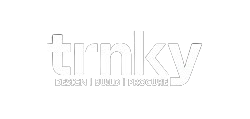In the rapidly evolving landscape of construction, the integration of Artificial Intelligence (AI) tools is revolutionizing the way design build procurement is approached. From streamlining processes to enhancing decision-making, AI technologies are empowering stakeholders across the construction industry to achieve greater efficiency, cost-effectiveness, and innovation. Let’s delve into the ways in which AI tools are reshaping design build procurement and driving the future of construction.
Optimizing Design Processes with AI
AI-powered design tools are enabling architects and engineers to optimize the design process in unprecedented ways. Machine learning algorithms analyze vast amounts of data to generate design solutions that are not only functional and aesthetically pleasing but also highly efficient and sustainable. By leveraging AI to automate repetitive tasks, generate design alternatives, and perform complex simulations, design teams can accelerate the design iteration process and unlock new levels of creativity and innovation.
Enhancing Procurement Efficiency and Accuracy
AI tools are revolutionizing the procurement process by automating routine tasks and improving accuracy in vendor selection and contract management. Natural Language Processing (NLP) algorithms analyze procurement documents and contracts to extract key information, identify risks, and ensure compliance with regulations and standards. Additionally, AI-powered procurement platforms leverage predictive analytics to forecast demand, optimize inventory levels, and identify cost-saving opportunities, enabling procurement teams to make data-driven decisions and streamline the supply chain.
Streamlining Project Management and Collaboration
AI technologies are transforming project management and collaboration in construction projects by providing real-time insights and facilitating communication among project stakeholders. AI-powered project management platforms utilize predictive analytics to identify potential delays, mitigate risks, and optimize resource allocation. Virtual assistants and chatbots enable seamless communication and coordination among team members, subcontractors, and clients, improving productivity and reducing the likelihood of misunderstandings or errors.
Improving Safety and Risk Management
AI tools are playing a crucial role in enhancing safety and risk management on construction sites. AI-powered sensors and drones monitor site conditions in real-time, detecting potential hazards and identifying safety violations before they escalate into incidents. Predictive analytics algorithms analyze historical data to forecast safety risks and develop proactive mitigation strategies. Additionally, AI-driven predictive maintenance systems monitor equipment performance and detect signs of failure, enabling maintenance teams to address issues before they result in downtime or accidents.
Enabling Sustainable Construction Practices
AI technologies are empowering construction companies to embrace sustainable practices and reduce their environmental footprint. AI-powered energy management systems optimize building energy usage by analyzing data from sensors and IoT devices to identify opportunities for energy efficiency improvements. Generative design algorithms create optimal building layouts and configurations that minimize resource consumption and waste generation. Additionally, AI-powered predictive maintenance systems optimize equipment performance, reducing energy consumption and greenhouse gas emissions associated with maintenance activities.
Conclusion: Embracing the Future of Construction with AI
In conclusion, AI tools are revolutionizing design build procurement and driving the future of construction by enabling greater efficiency, innovation, and sustainability. By leveraging AI-powered design tools, optimizing procurement processes, streamlining project management and collaboration, improving safety and risk management, and embracing sustainable construction practices, stakeholders across the construction industry can unlock new opportunities for growth and success. As AI continues to evolve and mature, its impact on design build procurement will only continue to grow, reshaping the way we design, build, and manage the built environment for generations to come.


